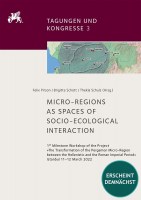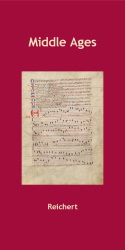Search
Editors: Pirson, Felix; Schütt, Brigitta; Schulz, Thekla
Micro-regions as spaces of socio-ecological Interaction
1st Milestone Workshop of the Project »The Transformation of the Pergamon Micro-region between the Hellenistic and the roman Imperial Period«, Istanbul 11–12 March 2022
Product Available Date 2024-06-05
21.0 x 29.7 cm, 286 p., 168 illustrations color, 77 illustrations b/w, paperback / softback
ISBN: 9783752008050
21.0 x 29.7 cm, 286 p., 168 illustrations color, 77 illustrations b/w, paperback / softback
110,00 €
ISBN: 9783752008050




 Preface
Preface

 Neuerscheinungen 2023/2024
Neuerscheinungen 2023/2024
 Gesamtverzeichnis 2023/2024
Gesamtverzeichnis 2023/2024
 Katalog Oriental Studies & Linguistics
Katalog Oriental Studies & Linguistics
 Mittelalter
Mittelalter
 Deutsche Inschriften
Deutsche Inschriften
 Musiktherapie
Musiktherapie
 Literaturen im Kontext
Literaturen im Kontext